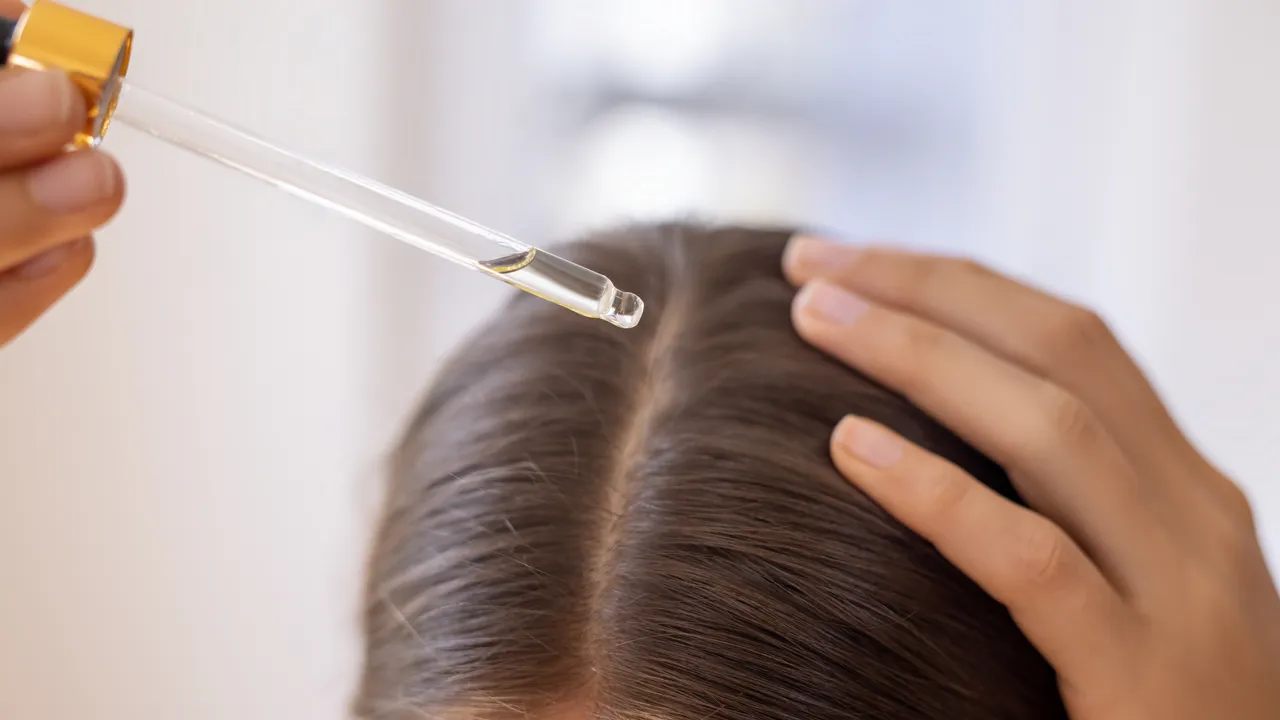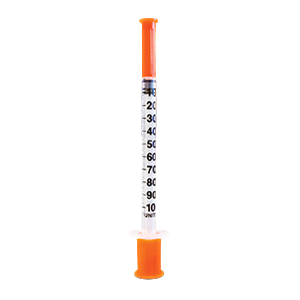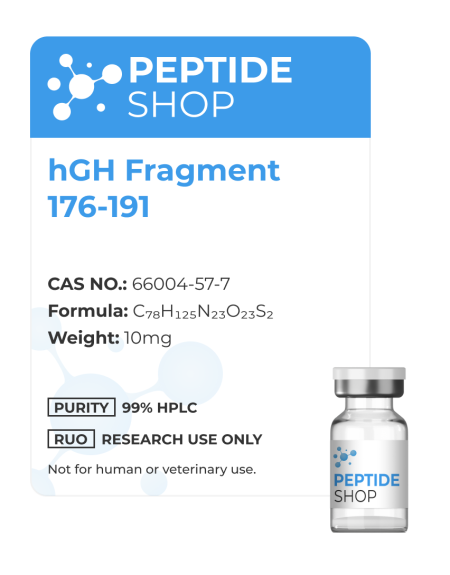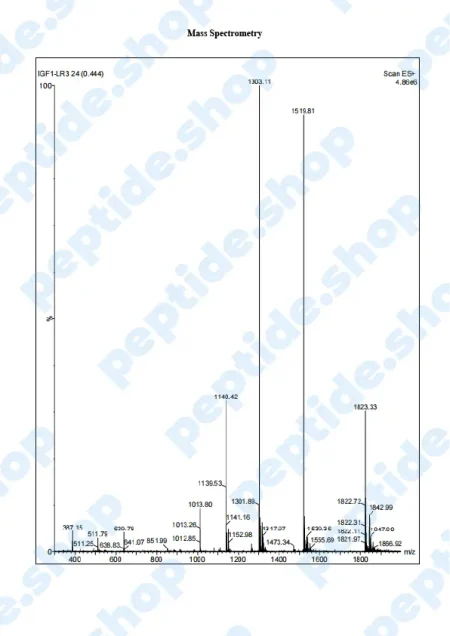-
hGH Fragment 176-191 $80.00
Numerous studies have shown that this peptide may represent numerous opportunities for competent scientists to investigate, especially cartilage regeneration and fatty tissue mitigation.
What is Fragment 176-191 peptide?
This synthetic amino acid sequence mimics the hGH sequence, starting from position 177 to position 191.
AOD 9604, or “lipolytic extract,” is another name for Fragment 176-191. Many researchers argue that Fragment 177-191 may be an important research compound in the context of obesity. They believe it can potentially burn fat in animal models in laboratory settings.
Despite positive results, Fragment 176-191 hasn’t been used for human research purposes and doesn’t have official medical approvals.
Growth hormone
According to research, it appears that hGH Fragment 176-191 may not produce any side effects often related to hGH supplementation. Several adverse effects, such as, impaired glucose tolerance, insulin resistance, and increases in IGF-a levels, have cast doubt on hGH’s use as an obesity treatment. However, when it comes to hGH Fragment 176-191, it doesn’t seem to be impacting blood IGF-1 levels or negatively affecting carbohydrate metabolism.
A trial conducted on Zucker rats in 2000 showed no detrimental effects on insulin sensitivity. Also, an investigation on obese mice done in 2001 did not seem to affect insulin secretion.
Properties
Studies conducted on animals suggest that this peptide can exhibit significant theoretical properties, which will be outlined below:
- The main potential of this Fragment is its lipolytic properties or, in other words, fat-reducing potential. While growth hormones promote development in infancy, they have also been speculated to have an important purpose in maturity.
- Lipoprotein lipase inhibitors may be activated in fat cells,
- By stimulating lipolysis in adipocytes may lead to a decrease in fat cell bulk,
- It might lead to loss of fat from the host body,
Weight
A 14-day trial researching overweight mice came to a conclusion that Fragment 176-191 may have increased skeletal muscle thermogenesis and boosted fat burning.
The study results indicated that this peptide may have enhanced beta (3)-AR RNA (ADRB3) levels, which caused rapid weight reduction in overweight animals but didn’t have much effect on lean mice.
Cartilage
Based on other animal research, it appears that hGH Fragment 176-191 may boost the effects of hyaluronic acid (HA). When Fragment 176-191 was combined with hyaluronic acid, it might boost cartilage formation in white rabbits which have issues with osteoporosis.
References:
Habibullah MM, Mohan S, Syed NK, Makeen HA, Jamal QMS, Alothaid H, Bantun F, Alhazmi A, Hakamy A, Kaabi YA, Samlan G, Lohani M, Thangavel N, Al-Kasim MA. Human Growth Hormone Fragment 176-191 Peptide Enhances the Toxicity of Doxorubicin-Loaded Chitosan Nanoparticles Against MCF-7 Breast Cancer Cells. Drug Des Devel Ther. 2022 Jun 27;16:1963-1974. doi: 10.2147/DDDT.S367586. PMID: 35783198; PMCID: PMC9249349.
https://www.sciencedirect.com/science/article/abs/pii/0304416582900332
Habibullah, Mahmoud & Mohan, Syam & Syed, Nabeel & Makeen, Hafiz & Jamal, Qazi & Alothaid, Hani & Bantun, Farkad & Hakamy, Ali & Kaabi, Yahia & Samlan, Ghalia & Lohani, Mohtashim & Thangavel, Neelaveni & Al-Kasim, Mohamed. (2022). Human Growth Hormone Fragment 176–191 Peptide Enhances the Toxicity of Doxorubicin-Loaded Chitosan Nanoparticles Against MCF-7 Breast Cancer Cells. Drug Design, Development and Therapy. 16. 1963. 10.2147/DDDT.S367586.
[rev_slider_vc alias="slider-02-1"]
Browse Categories
- Home
- Peptides
- Adipotide (FTPP)
- AICAR
- AOD9604
- BPC-157
- Cagrilintide
- Cerebrolysin
- Gonadorelin
- KPV
- Semaglutide
- Retatrutide
- CJC-1295
- CJC-1295 DAC
- Epithalon
- Ganirelix
- hGH Fragment 176-191
- Ipamorelin
- IGF-1 LR3
- Kisspeptin
- Liraglutide
- TB-500
- Sermorelin
- PT-141
- Oxytocin
- NAD+
- Semax
- Tesamorelin
- Teriparatide
- Thymosin Alpha-1
- Thymalin
- Triptorelin
- Vesugen (Bioregulator)
- Peptide Blends
- Cosmetic Peptides
- FAQ
- Blog
- Contact Us

 Anti Aging
Anti Aging Hair Growth
Hair Growth Muscle Growth
Muscle Growth Peptide Blends
Peptide Blends Peptide Supplies
Peptide Supplies Peptides
Peptides Skin
Skin Testosterone
Testosterone Weight Loss
Weight Loss
